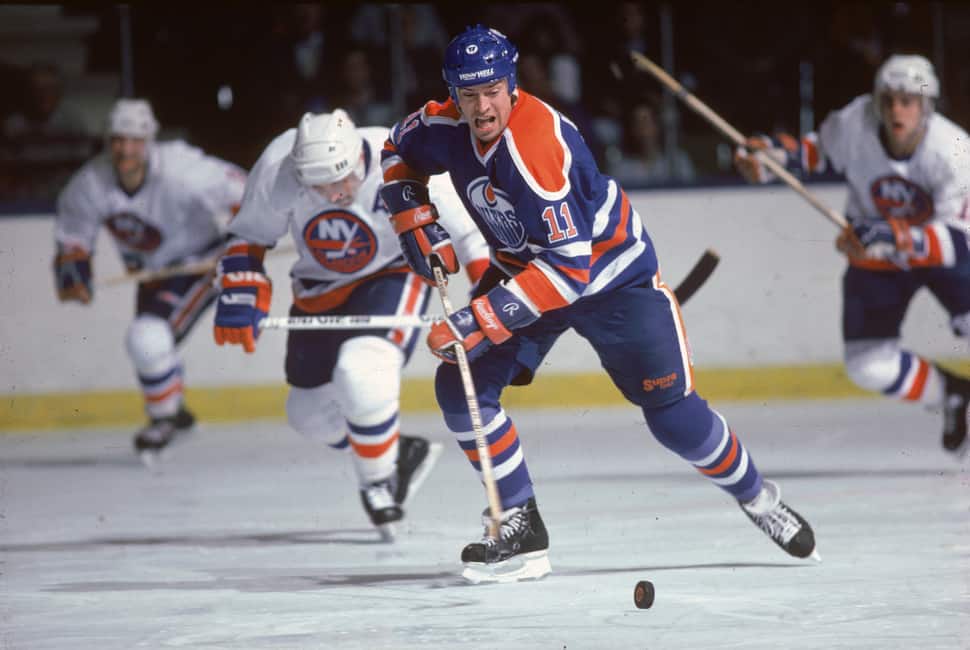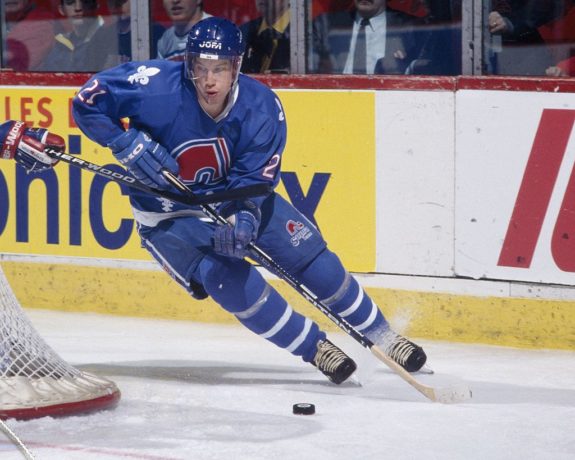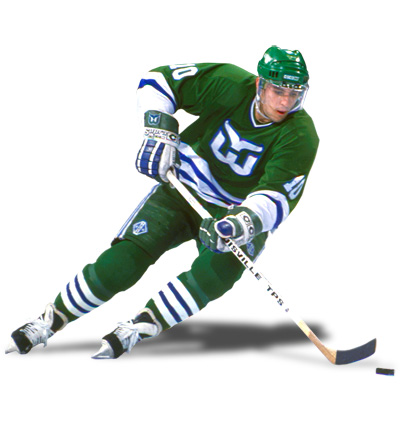
On March 30, 1979, the NHL announced that it would expand from 17 to 21 teams with the addition of four clubs from the World Hockey Association. The Edmonton Oilers, Hartford Whalers, Winnipeg Jets and Quebec Nordiques would begin play in Oct. 1979.
The Oilers became the most successful of the four teams, winning the Stanley Cup five times from 1984-90. They are also the only one of the four teams that have not relocated.
We have pulled this gem from The Hockey Writers archives. Written by former THW contributor Bruce Wilkie, and originally published on Dec. 19, 2009.
The 2019-20 hockey season will mark the 40th anniversary of the merger between the National Hockey League and the World Hockey Association. It was the last time that such a unification has taken place in a major North American sport.
The World Hockey Association began play in 1972. It was founded by Gary Davidson and Dennis Murphy, who also started the American Basketball Association. As with the ABA, the WHA was formed to challenge an established league. And like the ABA, the WHA succeeded in causing huge changes in their sport, on and off the playing surface.
Because of the WHA:
-Player salaries skyrocketed. For a time, the highest-paid athlete in the world was not Pele, the Brazilian soccer star, but Derek Sanderson, who left the Boston Bruins to sign with the WHA’s Philadelphia Blazers for the unheard of sum of $2.65 million.
-An era of unprecedented player freedom began. Before the WHA came along, NHL teams employed a reserve clause. In essence, teams kept the rights to a player, even after his contract had expired, in perpetuity. Players could only be free if the team allowed them to leave. Free agency did not exist. When NHL teams sued their players that jumped to the new league the courts ruled in favor of the players, effectively ending the reserve clause. For the first time, players were free to sell their services to the highest bidder.
-The game entered new markets. Cities such as Edmonton, and Winnipeg, long ignored by the NHL, were now in the major leagues.
-European players were brought in by WHA teams and they quickly proved that they could play hockey at the highest level.
The bidding war between the two leagues caused financial hardship for teams in both leagues. Eventually, both sides realized that a merger was the only option that made sense.
The Merger Process
Initial talks began in 1977, but it wasn’t until early 1979 that an agreement was reached. By that time, the WHA, which once had 15 teams, was down to 6. The Edmonton Oilers, Hartford Whalers, Quebec Nordiques and Winnipeg Jets would enter the NHL. The two other WHA teams, the Cincinnati Stingers and Birmingham Bulls were paid $1.5 million each to head off into the sunset.
Instead of being a true merger, the NHL treated it like an expansion. They charged each of the new teams a $6 million expansion fee. Each WHA team was allowed to keep only 2 skaters and 2 goalies and the existing NHL teams could reclaim their players who had jumped to the WHA. The newcomers were then allowed to restock their teams via an expansion draft.
Despite the restrictions imposed on them, Hartford and Edmonton made the playoffs in their first NHL season.
How Have They All Done?
Edmonton Oilers

The Oilers have been the most successful of the four teams. In the WHA, they were the only one of the four that did not win an Avco Cup championship, winning 1 division title in 7 years. But they made up for it once they joined the NHL. Coming in to the 2009-10 season, they’ve made the playoffs 20 times. They’ve won 7 conference championships and 5 Stanley Cups.
The Oilers are the only ex-WHA team to remain in their original city, and that almost changed. At one point owner Peter Pocklington had reached an agreement to sell the team to a group that would move them to Houston. A local group was put together and bought the OIlers to keep them in Alberta.
Quebec Nordiques/Colorado Avalanche
The Avalanche are the second most successful team. In the WHA they won 2 division titles and 1 Avco Cup. While in the NHL in Quebec they won 2 division championships, including one in their last season, 1994-95. Since the move to Denver, they won 8 consecutive division titles for an NHL record of 9. They have won 2 conference championships and 2 Stanley Cups

The team was a Stanley Cup contender when they moved to Denver and they were an immediate success there, setting an NHL record with 487 consecutive sellouts.
New England Whalers/Hartford Whalers/Carolina Hurricanes

The New England Whalers won the initial Avco Cup in 1973 and won 3 WHA division titles. They became the Hartford Whalers when they joined the NHL. In their NHL days in Hartford, they won 1 division title.
Since they moved to Carolina they’ve won 3 division titles, 2 conference championships and 1 Stanley Cup.
The Hurricanes played their first two seasons in North Carolina in Greensboro before settling in Raleigh.
Winnipeg Jets/Phoenix Coyotes/Arizona Coyotes
The Winnipeg Jets made a huge splash before they ever played a game by signing Bobby Hull away from the Chicago Blackhawks, thereby proving to the hockey world that the WHA was serious. They were the most successful of the 4 WHA teams, winning 3 division titles and 3 Avco Cups. Since they have joined the NHL, however, they have not won so much as a division title. They are the only team of the 4 not to have won a Stanley Cup.
The Coyotes stay in Phoenix has not been an easy one. They played their first eight seasons in Arizona in what is arguably the worst hockey facility in North America, the America West Arena. They moved to the beautiful Jobing.com Arena in Glendale, AZ in 2003.
The Coyotes situation in Phoenix is tenuous. The NHL refused to let the team be sold and moved to Hamilton, Ontario. Instead the league bought the team and is looking for a local buyer to keep the team in Phoenix. They have an agreement to sell the team, but it is with a group that backed out of an earlier bid.
Notes
- Two of the ex-WHA teams met in the Stanley Cup Finals in 2006 when the Carolina Hurricanes defeated the Edmonton Oilers in 7 games.
- Although the WHA ceased to exist in 1979, its legacy continued for 30 years. The last WHA player to appear in the NHL was Mark Messier, who retired in 2004. The last WHA on-ice official to work in the NHL was Don Koharski, who retired in 2009.
General Manager of the Buffalo Beauts (NWHL). Hockey history writer “The Hockey Writers”. Credentialed media for the NHL Combine and 2018 IIHF World Junior Championships in Buffalo, NY, USA. Born and raised in Buffalo, NY. Lifelong hockey fan for over 40 years. Proponent of the women’s game.
